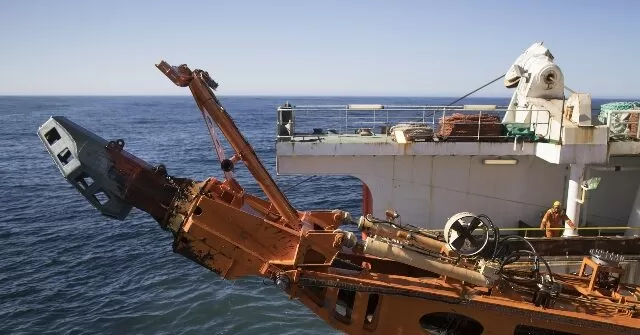In April, President Donald Trump issued an executive order that has sparked both excitement and concern among maritime experts and green activists. The order, which aims to protect America’s leadership in deep sea science and technology, authorizes mineral exploration on the ocean floor. This move has been met with mixed reactions, with some hailing it as a pioneering effort and others scrambling to stop it.
The executive order, titled “Promoting Responsible and Innovative Development of Our Nation’s Seabed,” is a bold step towards unlocking the potential of the ocean floor. It directs the Secretary of Commerce to develop a program to facilitate the exploration and development of critical minerals in the deep sea. This includes rare earth elements, which are essential for the production of high-tech devices such as smartphones and electric cars.
The United States currently relies heavily on imports for these critical minerals, making it vulnerable to supply disruptions. By tapping into the vast resources of the ocean floor, the country can reduce its dependence on foreign sources and strengthen its national security. This move also has the potential to create jobs and boost the economy, as the deep sea mining industry is estimated to be worth billions of dollars.
However, this executive order has raised concerns among environmentalists and marine conservationists. They fear that deep sea mining could have a devastating impact on the delicate and largely unexplored ecosystems of the ocean floor. The process of extracting minerals from the seabed involves dredging and drilling, which can disrupt marine life and destroy habitats. It could also release harmful chemicals and pollutants into the ocean, further damaging the already fragile ecosystem.
Maritime experts are also worried about the lack of regulations and technology to ensure responsible mining practices. The deep sea is a harsh and unpredictable environment, and any accidents or spills could have catastrophic consequences. There is also the issue of ownership and jurisdiction, as the ocean floor is considered to be part of the “common heritage of mankind” and is not owned by any one country.
Despite these concerns, the executive order has been welcomed by many as a necessary step towards securing America’s future. The United States has been lagging behind other countries, such as China and Russia, in deep sea mining efforts. This executive order could help the country catch up and maintain its position as a leader in science and technology.
Moreover, the order includes provisions for environmental impact assessments and consultation with stakeholders, which shows that the administration is taking a responsible approach to deep sea mining. It also encourages partnerships with other countries and international organizations to ensure that mining activities are carried out in a sustainable and responsible manner.
The potential benefits of deep sea mining cannot be ignored. It could provide a much-needed boost to the economy, reduce dependence on foreign sources, and create jobs. However, it is crucial that these activities are carried out responsibly and with the utmost consideration for the environment. The executive order provides a framework for this, and it is now up to the government and industry to ensure that it is implemented effectively.
In conclusion, President Trump’s executive order on deep sea mining has sparked a debate between those who see it as a pioneering effort and those who are concerned about its potential impact on the environment. While there are valid concerns, it is important to remember the potential benefits of this move. With responsible practices and collaboration with other countries, deep sea mining could be a game-changer for America’s economy and national security. It is a step towards securing our future and maintaining our leadership in science and technology.





![Complete BritRail Pass Guide [Types, How to Use It, Pros + Cons]](https://inside-news.uk/wp-content/uploads/2025/06/00221EB4-BCA2-4DBB-6CD4-83DBC37D71FA-120x86.webp)
















